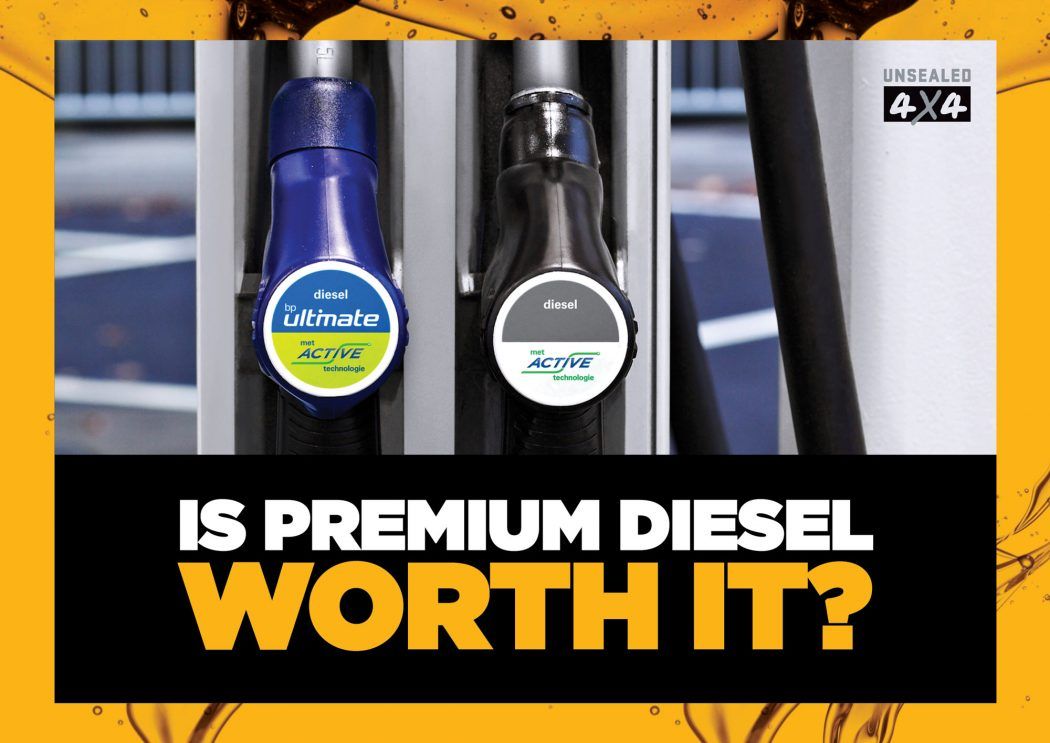Once upon a time, diesel was diesel… and you didn’t have any real decisions to make when refilling the tank. Those were simpler times, when people didn’t buy jeans with holes already in them, or make drinks out of grass. But, time moves on.
These days, you have two options: regular diesel or premium diesel. Not dissimilar to petrol, right? Wrong. We did some research to find out what the go is.
One of the first things I came across in my research was this video from Pommy car show Fifth Gear. http://www.youtube.com/watch?v=ezjknhwcQXU?autoplay=1
But this doesn’t work for Australia necessarily. This is because in every country fuel is mixed and distilled to different standards and qualities. Once upon a time Australian diesel was pretty rough compared to Europe, and European manufacturers complained that they couldn’t introduce their leanest, cleanest and most efficient engines in Australia because of the fuel.
Since 2009 all Australian diesel is the ‘ultra-low Sulphur’ kind, which means the fuel has only 10 parts-per-million (PPM) sulphur content. Ultra-low sulphur fuel means we can run cleaner and more efficient fuels, but the trade-off is the fuel has lower lubricity. To overcome this, ‘ULSD’ has additives thrown into the mix to help out.
Where petrol has octane, diesel has cetane. The cetane rating of a diesel indicates how big the ‘bang’ is; a higher number could give you an extra bump in performance.
It’s kind of easy to get fooled into thinking the ‘premium’ connotation in the more expensive diesels means they will give you more performance, but that isn’t really the case. In all cases (BP, Caltex and Shell), I found cetane ratings of regular and premium diesel were all the same. And there was little to no difference in lubricity levels or flash points.
The ‘premium’ aspect comes from the additives. More than just the additive to help with lubricity… and here are the important ones:
Detergents:
No, don’t whack a squirt of Dynamo or a spoon of Cold Power into your tank. Premium diesels have special detergents added that don’t affect the performance of the fuel, but will clean out deposits from your fuel injection system. The ridiculously fine nozzles of a modern injector are the most prone to partial blocking, but rails and pumps can all do with a bit of a clean.
Corrosion Inhibitors:
Some fuel tanks are made of steel, and plenty of your pipes, fittings, joiners and rails in the fuel system are made from a wide array of metals. Corrosion inhibitors are designed to help keep corrosion down, and all of those associated problems at bay.
Foaming Inhibitors:
I remember filling up a diesel bladder at Mt Dare, trying to get every drop into it before taking on the Madigan Line. I’d just had my last shower for 12 days, feeling resplendent in clean clothes that were meant to last 4-5 days. Then, a torrent of bubbling diesel spewed out of the bladder – covering me. Lesson learned.
Premium diesels have additives to stop the foaming, making it easier and cleaner to fill up your tank. Diesel didn’t always foam, but the addition of biodiesel into the mix is the culprit.
So, is it worth it?
Looking at the extra few cents per litre it costs you, compared to some extraordinary costs that fuel system parts cost under your bonnet, the premium diesel probably isn’t a bad idea. At least run a couple of tanks of the good stuff every now and then, to help clean the insides of your fuel system.
I would definitely look at running a few tanks of premium diesel after a long trip touring around and filling up at remote servos. Or, if you subject your diesel to lots of stop-start driving and short trips, premium can help to reduce (but not stop) the problems that come with it.
BP Premium Diesel
The specs:
Cetane Index: 46 minimum, 52 typical.
Flash Point (°C): 61.5 minimum, 66 normal.
Viscosity – kinematic @ 40°C: 2.0 to 4.5 range, 3.0 typical.
Lubricity wear scar diameter: 0.46 maximum, 0.40 typical.
Additives:
- includes a lubricity additive
- includes a detergent additive to clean fouled injectors
- includes an additive to protect against corrosion
- includes an additive to reduce foaming and splash back
Article from Unsealed 4×4


